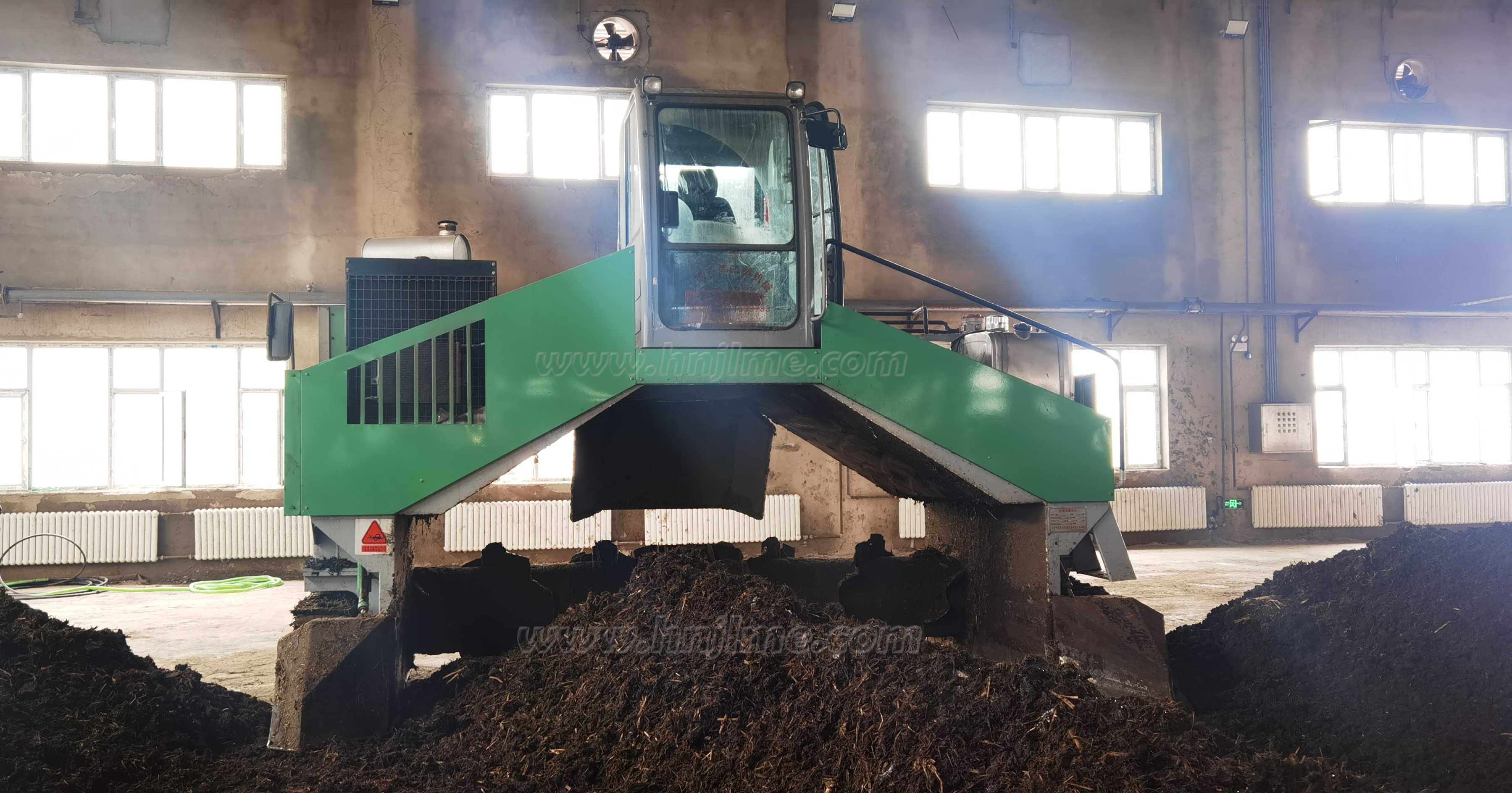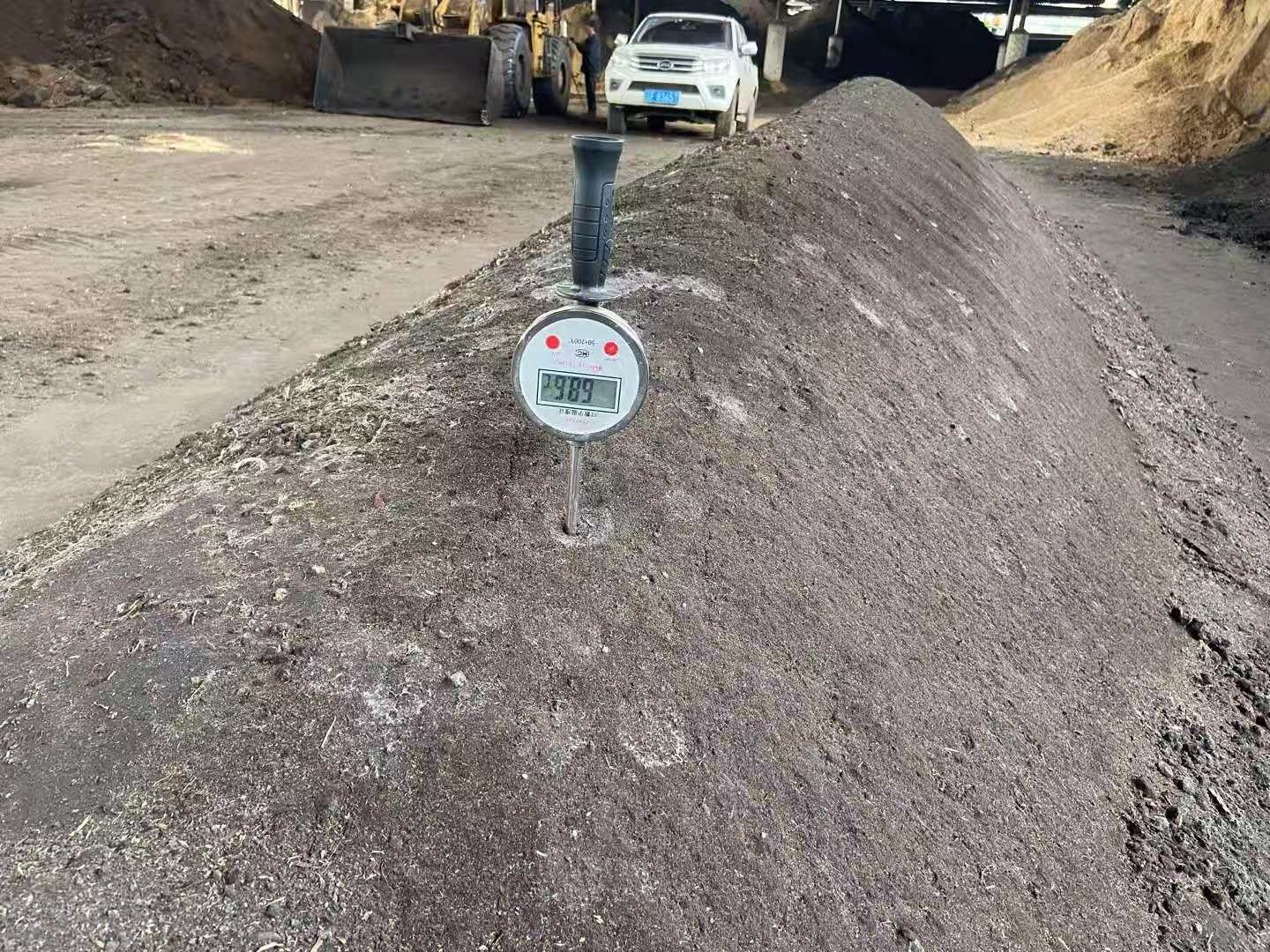Organic fertilizer fermentation requirements(Second part)
4. Requirements for stirring and aeration of fermentation materials:
The fermentation methods of modern ecological organic fertilizer raw tea can currently be divided into container-type stirring-aeration fermentation method and ground-stack type turning (stirring) fermentation method. The container-type stirring-aeration fermentation method requires that after sufficient stirring and uniformity, the constant-temperature intermittent aeration fermentation is carried out under high-temperature sterilization conditions. Generally, the fermentation time is required to be more than 2 hours above 55°C. Under non-sterilizing conditions, the constant temperature fermentation time above 55℃ is generally required to be about 48 hours. The ground stacking turning (stirring) fermentation method requires the fermentation materials to be turned over more than 7 times to ensure that the fermentation materials are fully stirred and evenly decomposed and dehydrated.

5. Fermentation temperature control:
As we all know, the Pasteur sterilization temperature invented by the scientist Mr. Pasteur is 60°C. Generally, the vegetative bodies of non-spore microorganisms will be inactivated in 60 minutes at this temperature. Most harmful microorganisms, pests, and weed seeds cannot withstand heat treatment at 60°C for more than five consecutive days. Although Bacillus spores can withstand high temperatures of 60°C for a long period of time, once they germinate at this stage, they will become inactive within a short period of time. Therefore, generally speaking, high temperatures above 55°C can be used as the benchmark temperature for harmless treatment.From spring to autumn, the fermentation of organic waste such as manure often occurs: after the organic material is fermented with bacterial strains, after reaching the regular fermentation cycle of organic fertilizer for 15 days, the high temperature continues, and the temperature sometimes reaches 80°C. This is half Common characteristics of fermentation of organic materials in a decomposed state. The microbial fermentation process is a continuous decomposition process. As long as the living conditions of the microorganisms are suitable and nutrients are sufficient, the biological fermentation and metabolic processes will not stop abruptly. At this time, it is necessary to change the appropriate fermentation conditions of the microorganisms, stop fermentation and decomposition, and help maintain the nutrients of the raw materials. Forced cooling can be done through the following aspects:
① Select special low-temperature or medium-temperature fermentation strains for summer. This type of microorganisms are suitable for functioning under low or medium temperature conditions. After a short high-temperature process, a large number of them die, making the fermentation materials unsustainable at high temperatures.
② Turning the pile multiple times promotes the loss of heat and moisture. Proper moisture conditions are the fundamental reason why fermentation cannot be completely terminated. The pile can be turned 2-3 times a day.
③ Reduce the volume of the pile, dry the fermentation materials as soon as possible, and force the temperature to drop.
④Add high-temperature bacteriostatic agent to the fermentation pile,
⑤Choose fertilizer packaging bags with inner membranes. The strains used to ferment organic materials are generally thermophilic aerobic microorganisms or facultative anaerobic microorganisms. They are either strictly aerobic or not resistant to high temperatures. Packaging bags with inner membranes are used to package fermented organic fertilizers. On the one hand, the activity of aerobic microorganisms is blocked. The activity is significantly reduced and the microorganisms become dormant or die. On the other hand, adding inner film packaging bags can prevent the loss of moisture and nutrients caused by heat generation of organic fertilizers.

6. Fermentation time control:
The fermentation and decomposition process of agricultural wastes such as livestock manure is actually mainly a catabolic process of microorganisms. From the perspective of production time, organic materials that have been fully turned over and fermented aerobically at high temperature for 3-20 days have high nutrient content, high content of active microbial flora, high content of plant-available metabolites, strong activity, and elimination of harmful bacteria and weeds. Harmful substances such as seeds, roundworm eggs, and E. coli have basically disappeared, and the moisture content has basically reached the standard. After a little post-ripening, it can meet the national standards for organic fertilizers. From the perspective of fertilization effect, the soil fertilization effect of short-term fermented organic fertilizer is better than that of thoroughly decomposed organic materials. Therefore, this semi-rotted ecological organic fertilizer fermentation model is a market-oriented production model and a commonly used production method in China. Generally speaking, stack fermentation: high-temperature aerobic fermentation for about 7 days, and the ecological organic fertilizer produced by full fermentation is the best.







